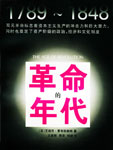Chapter 1 preamble
Eric Hobsbawm
We here refer to the French Revolution of 1789 and the (British) Industrial Revolution that occurred at the same time as the "dual revolution". "In this sense focus on.Therefore, strictly speaking, the history presented in this book is neither a history of Europe nor a history of the world.My representations of a country in the book, though often sketchy, are in terms of the effects of the dual revolution it felt during this period. Let alone.Thus, the reader will find some references to Egypt but not to Japan, more to Ireland than to Bulgaria, and more to Latin America than to Africa.Naturally, this does not mean that the histories of the countries and peoples neglected in this book are less important or less important than the histories of those countries and peoples discussed in this book.The reason why this book focuses on Europe, more precisely on France and England, is that during this period, the fundamental transformation of the world or at least most of the world took place in Europe, to be more precise, Happened in France and England.However, some topics that deserve more detailed treatment have also been left aside, not only because of space constraints, but also because these subjects will be fully treated in other volumes in this series (like the history of the United States of America).
The purpose of this book is not to elaborate, but to attempt to explain and achieve what the French call haute vulgarisation.Theoretically literate, educated, and knowledgeable citizens are ideal readers who are not only curious about the past, but also wish to understand how and why the world came to be the way it is today, and where it is headed. where.Therefore, it seems pedantic and superfluous to add a large number of academic notes to this book. These notes should be prepared for learned people.As a result, the notes in the book are almost entirely about actual citations and numerical sources, and sometimes the basis for some particularly controversial or outrageous statements.
For such a comprehensive work, however, some mention of the material on which it is based is entirely necessary.All historians are experts in some respects (or, to put it another way, more ignorant in some respects.), except in a fairly narrow field, they basically have to rely on the work of other historians, the 1789 - For the period of 1848, there were so many second-hand documents alone that any individual, even if he could read materials written in various languages (of course, all historians can actually only master a few languages at most.), Nor can it be exhausted.Therefore, most of the materials in this book are second-hand or even third-hand materials, and deficiencies are inevitable.Similarly, the book will inevitably miss all the materials, and relevant experts will share the same regret as the author.
However, only when the web of history is dismantled can individual threads be drawn out. Out of practical needs, it is necessary for us to divide this subject into a certain number of subheadings.I have tried very roughly to divide this book into two parts.The first part generally deals with some of the major developments of the period, while the second part provides an overview of the kind of society created by the dual revolution.If such a distinction would make some material appear repetitive, it is not for theoretical reasons but purely for convenience.
I am grateful to the many people with whom I have discussed aspects of this book, and to whom I have read some passages in drafts or proofs, and of course they have nothing to do with errors.In particular, I would like to thank JD Bernal, Douglas Dakin, Ernst Fischer, Francis Haskell, HG Koenigsberger, and Leslie ( RF Leslie).Chapter Fourteen is especially helped by Fischer's ideas.Ms. P. Ralph was very helpful as secretary and research assistant, and Ms. E. Mason for indexing this book are also gratefully acknowledged.
London, December 1961

